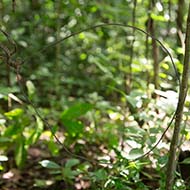Petition launched to ban snare trap use

"Only a ban can ensure that the aims of the Animal Welfare Act to prevent suffering are enforced." - NASC.
An online petition started by the National Anti Snaring Campaign (NASC) calling for the use of free-running snares to be made illegal in the UK has gathered over 30,000 signatures.
The petition calls for the Government to, “prohibit the sale, use and manufacture of free-running snares under the Wildlife and Countryside Act 1981, putting them in the same category as self-locking snares, which are already illegal.”
NASC, who has been campaigning on the use of snares for 29 years, started the petition to prevent animal suffering, believing that the setting of free-running snares cannot ensure animal welfare as required under the Animal Welfare Act 2006, as the snares are indiscriminate.
Speaking on its previous campaign work, and the reasons for a ban on snares, a representative from NASC commented: “In the past we presented a number of hand signed petitions to Downing Street in partnership with the Badger Trust which led the Government to create the “Snares Working Group”, about 13 years ago.
“They initiated a major study (Determining the extent and humaneness of snaring in England and Wales) on snaring costing over £145,000 using experiments carried out by the Central Science laboratory, and field trials on snaring foxes in conjunction with the Game and Wildlife Conservation Trust.
“Key findings were as many badgers as foxes were snared in many trials, and significant injury caused – particularly to badgers. With rabbits, the snares were not acting as a holding device, but causing a slow and painful death with a high mortality rate.”
Promoted by Animal Aid, an organisation also campaigning against the use of snares, alongside the League Against Cruel Sports, One Kind, Born Free Foundation, Animal Survival International, HIT, RSPCA and Badger Trust, the petition has garnered a significant amount of support.
The NASC representative continued: “In the latest on line petition we are asking the Government to recognise that the aims of the Animal Welfare Act to prevent “unnecessary suffering”cannot be achieved as snares are an inherently cruel and indiscriminate way of trapping animals.
“And further, that when carried out to the letter of a “code of practice” they are still causing significant injury and death and acting indiscriminately.
“Therefore only a ban can ensure that the aims of the Animal Welfare Act to prevent suffering are enforced.”
The Government responded to the petition in June, saying: “We know that some people consider snares to be an inhumane and unnecessary means of trapping wild animals, while others maintain they are an essential tool in controlling certain species.
“Therefore, we have committed to launching a call for evidence on the use of snares. This was announced in our Action Plan for Animal Welfare.
“The call for evidence will be publicly available online, allowing all interested parties to express their views on the use of snares. In this way, the Government will ensure it has the very latest understanding on this issue, and our position will be informed by the responses received.”



 The latest
The latest